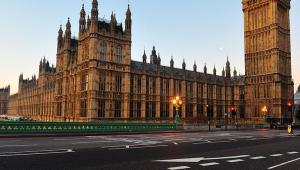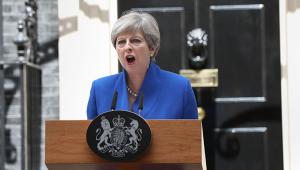A report by the Institute for Government highlighted that May faced a challenge in light of Conservative manifesto pledges to cut spending while improving public services, which it said was a hugely ambitious agenda.
This was before the added pressure of Brexit on government, and the review urged May’s new government to avoid spending commitments that were now unlikely to be met. It highlighted the example that NHS spending plans assumed sustained efficiency savings of over 2% a year, despite the fact that this has never happened before.
IfG deputy director Julian McCrae said “making a clean break from the past” and setting a serious strategy for the future would help achieve the government’s aims and be welcomed by the public.
“Whether the public’s more hopeful attitude is just a short-term bounce, fading away as people see more of Theresa May’s government, or this marks a turning point in how people view politicians, will depend heavily on the actions of the government over the next few months,” he added.
To do this, the IFG urged May to lay out a clear set of priorities, build on work already in place, and engage the public in any contentious changes.
In the 2015 Spending Review, the government announced cuts to day-to-day spending of more than £10bn by 2019/20. Protection for some departments such as health, defence and education, has meant sharper cuts for other departments, such as the Ministry of Justice and the Department for Transport.
However, the IfG said public support for cuts had dropped significantly since the last election. During much of the last parliament, the public believed that cuts were necessary as opposed to unnecessary by a margin of two to one. By March 2016, this had dipped sharply. Most people now agree that cuts are necessary rather than unnecessary, but the gap between them has halved from around 25% to 12%.
The report urged Theresa May to learn from Cameron’s failures by transparently setting a list of priorities, avoiding “self-defeating rhetoric which feeds into public skepticism” and focus her political capital on a few, crucial domestic issues, especially in a parliament dominated by Brexit.
In terms of the concrete options available to her, the IfG highlighted three possible ways to mitigate cuts. Money that currently goes to funding the EU could be used to offset cuts, or the government could look to reduce the protections on pensioner benefits. The third option would be to reduce the country’s commitments on overseas aid – however the report stated the amount of money freed up by this would be relatively small.
The Spending Challenge report advises May to complete the government’s digital strategy, which it said had been patchy to date, and move forward with devolution and the Northern Powerhouse project, while avoiding “ambiguous statements” about its future. Also, it called for reform to the civil service, which lacked the “commercial, financial and project management skills necessary to run a modern state”.



















